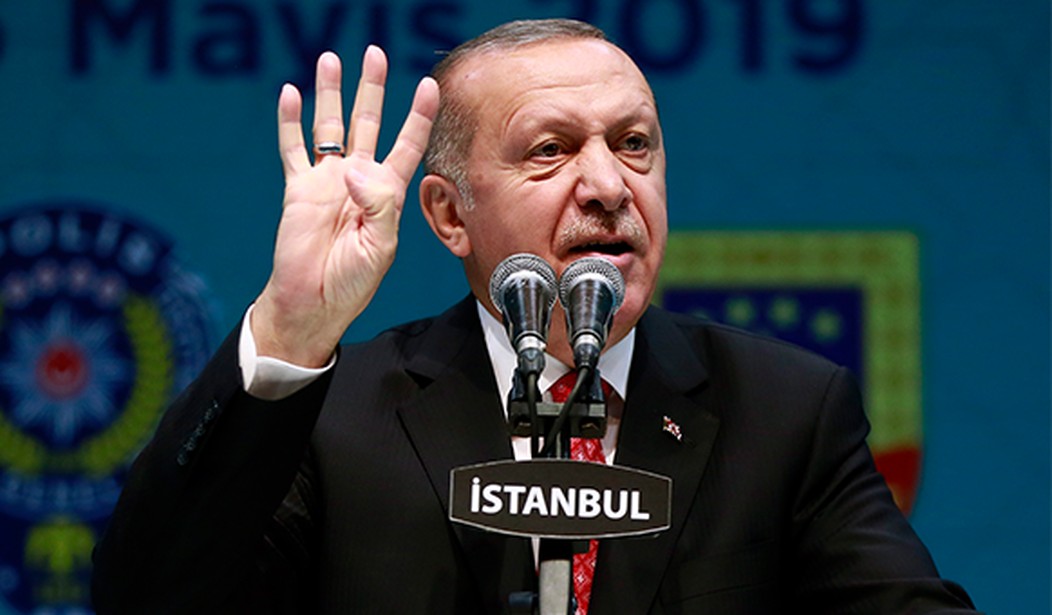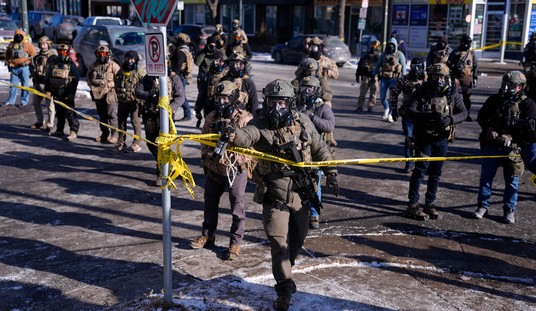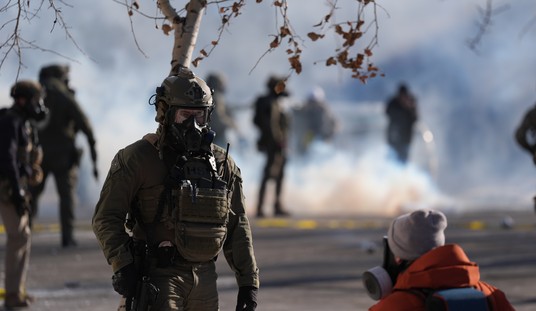Turkey and Greece are threatening to go to war again. The two NATO allies are facing off over a potentially small natural gas find in the Eastern Mediterranean. But it’s not about the gas, nor is it about insufferable Turkish Islamic President Recep Tayyip Erdogan, although it probably should be. Erdogan has been flexing his muscles throughout the region and this latest standoff between the two historical enemies is more evidence of his imperialistic designs on the region.
Erdogan fancies himself a latter-day Ottoman sultan and would dearly love to dominate the region from the Mediterranean Sea to Iran. To that end, he has struck a deal with Libya that creates a naval corridor connecting Turkey to the Mediterranean. That’s all well and good, except there are several Greek islands that are in that corridor, including Rhodes and Crete. Greece was miffed that Erdogan forgot to consult his NATO ally about the deal with Libya and relations have been frosty ever since.
The current spat seems a minor irritation. But taken with all the other moves by Erdogan in the Eastern Mediterranean, the confrontation would seem to be foreordained.
The practicalities of the dispute are straightforward: Turkey dispatched the Oruc Reis to survey an area of the Mediterranean which it claims is within its Exclusive Economic Zone, giving it the right to search for fossil fuels. Greece believes the area sits on its continental shelf. It’s basing its claim on the UN’s Convention on the Law of the Sea, which states that even the smallest of islands have their own EEZ. Turkey, one of only 15 countries that hasn’t signed the UN Convention, is unwilling to accept these islands have a claim to the territory. As the struggle for Indian/Chinese dominance in the South China Sea shows, countries increasingly view their EEZs in terms similar to sovereign soil, as it’s becoming easier to extract the resources hidden in their depths.
Both sides have been securing allies in the dispute. The EU and NATO are officially neutral, but that hasn’t stopped France from sending warships to help its ally Greece and sticking it to Erdogan, who tried to make France look bad in Libya by backing rebels against the officially recognized government. Greece also signed a maritime deal with Egypt. As for Erdogan, he got Russian President Putin to help. The uneasy alliance between the two was solidified by Putin’s sale of thousands of advanced anti-aircraft missiles to Turkey.
It’s not a good sign when two historic adversaries start forcing nations in the region to choose sides. But both nations see the confrontation as being worth the risk of war.
Putting French posturing to one side, the issue for Greece is that Turkey simply does not want to talk seriously about the eastern Mediterranean. During the negotiations, the Turkish have attempted to add a host of other issues and claims to the agenda, in effect advancing their ‘Blue Homeland’ doctrine. The Blue Homeland, first championed by the Turkish admiral Cem Gürdeniz in 2006, is a maritime plan which would see Turkey’s ‘blue’ naval territory extend to the middle of the Aegean, halfway between the Greek mainland and the Turkish coast. This would effectively surround Greek islands like Lesvos and Chios, meaning islands with tens of thousands of people on them would potentially be encircled by a foreign nation’s sovereign waters.
Turkey announced naval live-fire exercises in the region — not exactly routine when there are dozens of warships from several nations sailing in the Eastern Med keeping an eye on each other.
Neither side appears willing to give an inch at the moment. No negotiations are scheduled. Indeed, President Erdogan does not appear to want to talk anyway. Greece is trying to keep the crisis at a low simmer, unlike Erdogan, whose bombastic rhetoric looks to rile up Turkish nationalists.
Greece wants the EU to sanction Turkey, but that’s not going to happen. The Europeans have taken a decidedly hands-off approach to the conflict. And if anyone cares, NATO appears paralyzed by the row.
A war between the two is not a certainty, but given the history of these two countries, I wouldn’t bet against it.










Join the conversation as a VIP Member